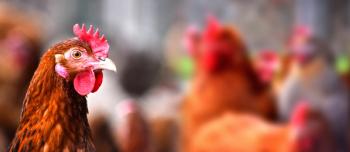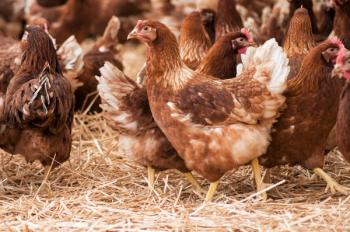
Spire to take AABP presidency; alternative CE programs needed
Manhattan, Kan.-Dr. Mark Spire the incoming president of the American Association of Bovine Practitioners (AABP), says food animal veterinary medicine will be rife with challenges this next year.
Manhattan, Kan.-Dr. Mark Spire the incoming president of the American Association of Bovine Practitioners (AABP), says food animal veterinary medicine will be rife with challenges this next year.
Dr. Mark Spire
Spire, of Kansas State University's Department of Diagnostic Medicine/Pathobiology, adds that animal identification, country of origin labeling, feeding antimicrobials, unscrupulous compounding, food safety and animal welfare will remain top issues for practitioners.
Of utmost concern to AABP this year will be to focus on succession of food animal practice and making sure the profession has recruited the next generation to step in and serve food animal practice.
"For the most part, we are a pretty young organization. But from our demographics, we are graying slowly but surely. People will want to retire after investing their life in their practices. So, finding and recruiting that next generation of mixed animal practitioners will be absolutely critical for our organization."
Spire will take over as the next president of the AABP at this month's meeting in Columbus, Ohio, Sept. 18-20.
Spire adds that his term as president will also focus on helping to create new alternatives for continuing education for bovine practitioners, including the use of the Internet and other ways to provide distance education. Spire adds that AABP will maintain its mission of providing high-quality continuing education for bovine practitioners.
"We are a changing profession," he says. "Whereas we are used to dealing with strictly sick animals, we are now moving a lot more into management and decision-making of animal care and comfort."
Take for example, animal identification. A report detailing a national system for animal identification is anticipated next month from the United States Department of Agriculture. Spire, who served on USDA's identification transition team, adds that veterinarians will play a critical role in animal identification, including possible involvement with tagging animals, maintaining health records systems and possibly acting as point person to issue animal health identification tags.
The goal of the system is to improve agriculture's traceback capabilities in the event of accidental introduction of an animal pathogen or even a bioterrorist event, he explains.
Spire, a DVM graduate of Texas A&M University in 1974, has been involved in research focusing on animal surveillance systems, feedlot, stocker health issues, remote diagnostics and infrared thermography profiles. Spire also helped create animal care guidelines with the National Cattlemen's Beef Association. He co-produced an informational Web site for stocker cattle called beefstockerus.org, and he owns two small businesses.
In his spare time, he is restoring a 100-year-old farmhouse and a 1949 Chevy pick-up.
He is married to Lynda, who is assistant dean of continuing education at KSU, and has two children, Lyndsay, 28 and Travis, 24.
Newsletter
From exam room tips to practice management insights, get trusted veterinary news delivered straight to your inbox—subscribe to dvm360.




